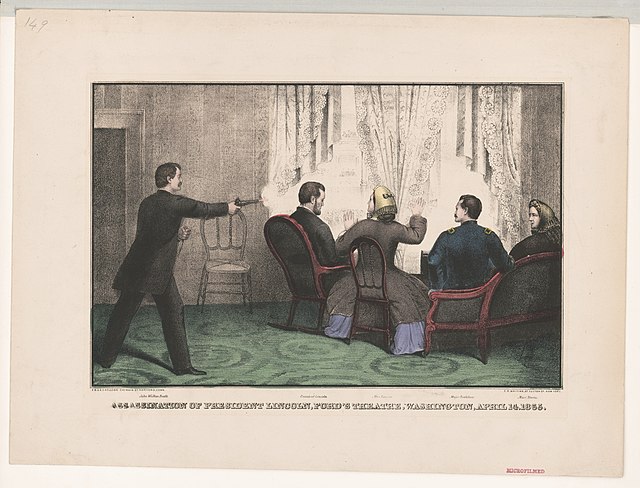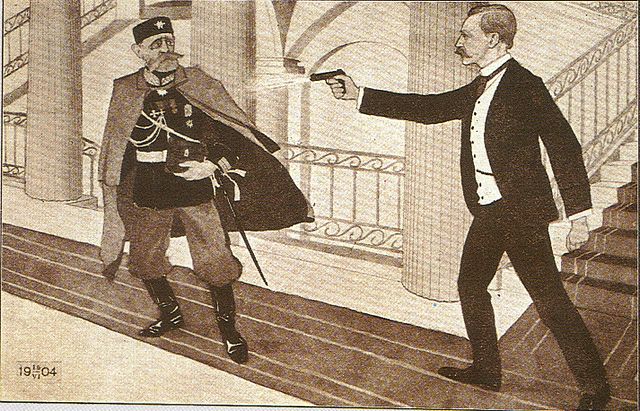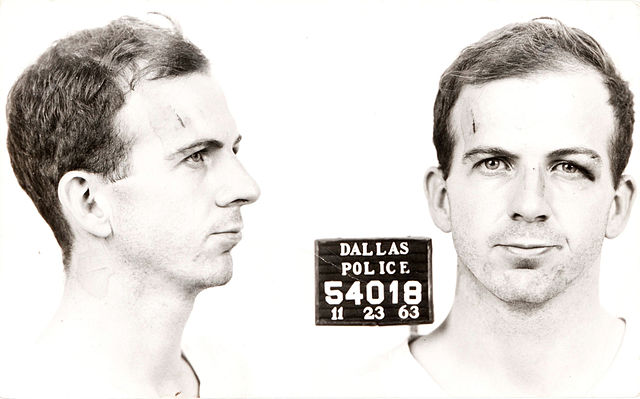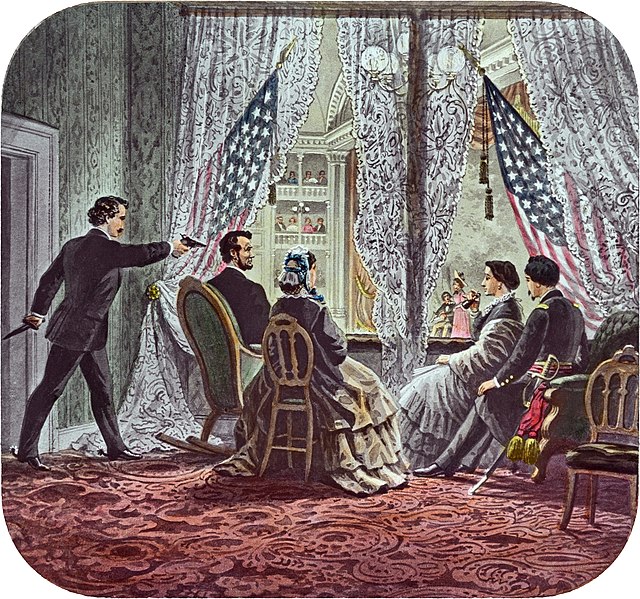Assassination is the willful killing, by a sudden, secret, or planned attack, of a person—especially if prominent or important. It may be prompted by grievances, notoriety, financial, military, political or other motives. Many times governments and criminal groups order assassinations to be committed by their accomplices. Acts of assassination have been performed since ancient times. A person who carries out an assassination is called an assassin or hitman.
Scenario depicting the assassination of Abraham Lincoln.
Nikolay Bobrikov, the Russian Governor-General of Finland, assassinated by Eugen Schauman on June 16, 1904, in Helsinki. A drawing of the assassination by an unknown author.
Mugshot of Lee Harvey Oswald, the individual responsible for the assassination of United States President John F. Kennedy on November 22, 1963. Oswald himself was murdered two days later by Jack Ruby, the first such event to receive wide television coverage.
Shown in the presidential booth of Ford's Theatre, from left to right, are assassin John Wilkes Booth, Abraham Lincoln, Mary Todd Lincoln, Clara Harris and Henry Rathbone.
The Order of Assassins or simply the Assassins were a Nizari Isma'ili order that existed between 1090 and 1275 AD, founded by Hasan-i Sabbah.
Masyaf Castle in Hama. It was the headquarters of the Assassins in the Levant. Picture taken in 2017
Edward I, King of England thwarts an attempt at his life by an Assassin and kills the attacker. The assassin likely was sent by the Mamluk Sultan Baibars, in order to remove his opposition to a 10-year truce with the Christian states at Jerusalem. 19th-century depiction by Gustave Doré
View of the city of Alamut being besieged. 1438 depiction by the Tarikh-i Jahangushay
Remains of the Alamut Castle in Qazvin, Iran








